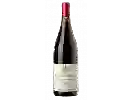
Winery Jean de la RocheChenin
In the mouth this white wine is a with a nice freshness.
This wine generally goes well with vegetarian, poultry or rich fish (salmon, tuna etc).
Taste structure of the Chenin from the Winery Jean de la Roche
Light | Bold | |
Dry | Sweet | |
Soft | Acidic |
In the mouth the Chenin of Winery Jean de la Roche in the region of Loire Valley is a with a nice freshness.
Food and wine pairings with Chenin
Pairings that work perfectly with Chenin
Original food and wine pairings with Chenin
The Chenin of Winery Jean de la Roche matches generally quite well with dishes of rich fish (salmon, tuna etc), vegetarian or poultry such as recipes of fish pot, leek, goat cheese and bacon quiche or roast turkey in the oven.
Details and technical informations about Winery Jean de la Roche's Chenin.
Discover the grape variety: Chenin blanc
It most certainly originates from the Anjou region and is registered in the official catalogue of wine grape varieties on the A1 list. It can also be found in South Africa, Australia, Argentina, Chile, the United States (California), New Zealand, etc. It is said to be a descendant of Savagnin and to have sauvignonasse as its second parent (Jean-Michel Boursiquot 2019). On the other hand, Chenin blanc is the half-brother of verdelho and sauvignon blanc and is the father of colombard.
Last vintages of this wine
The best vintages of Chenin from Winery Jean de la Roche are 2013
Informations about the Winery Jean de la Roche
The Winery Jean de la Roche is one of of the world's greatest estates. It offers 15 wines for sale in the of Loire Valley to come and discover on site or to buy online.
The wine region of Loire Valley
The Loire Valley is a key wine region in western France. It follows the course of the Loire River on its Long journey through the heart of France, from the inland hills of the Auvergne to the plains of the French Atlantic coast near Nantes (Muscadet country). Important in terms of quantity and quality, the region produces large quantities (about 4 million h/l each year) of everyday wines, as well as some of France's greatest wines. Diversity is another of the region's major assets; the styles of wine produced here range from the light, tangy Muscadet to the Sweet, honeyed Bonnezeaux, the Sparkling whites of Vouvray and the juicy, Tannic reds of Chinon and Saumur.
The word of the wine: Reduction
A physiological and chemical phenomenon that occurs in wine in the absence of oxygen. The smell of reduction is characterized by animal and sometimes fetid notes that disappear in principle with aeration. It is recommended to decant reduced wines.














